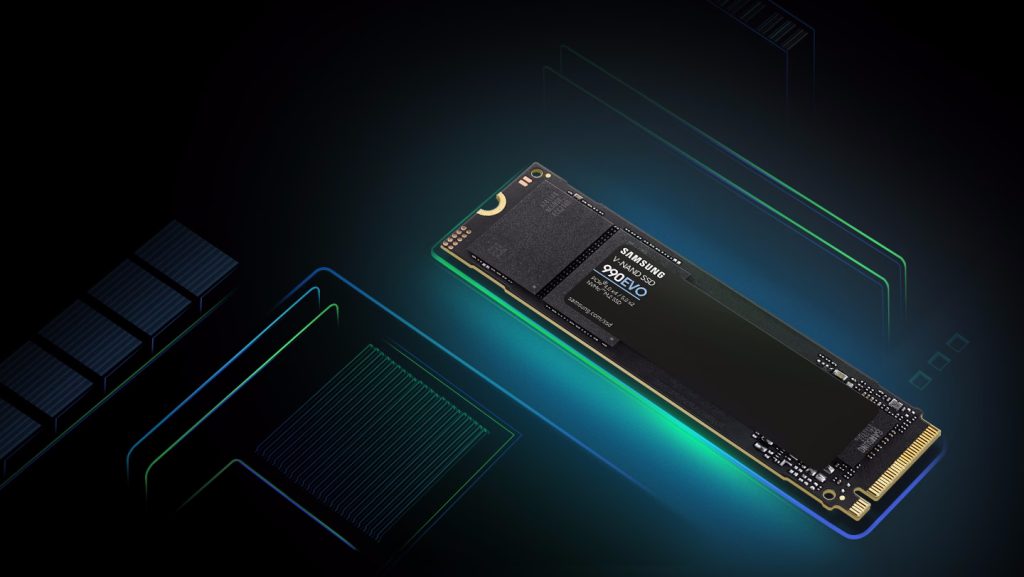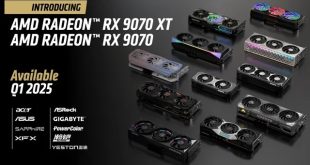Samsung has published the product page for their upcoming 990 Evo NVMe SSD, revealing all the details about the world's first hybrid PCIe 4.0/PCIe 5.0 SSD.
Despite the five-year gap between the two models, the 990 Evo (via WinFuture) only offers a minor improvement over its predecessor. The 990 Evo does not reach the maximum potential of PCIe 4.0 with four lanes, which is approximately 8,000 MB/s. Instead, Samsung's flagship PCIe 4.0 SSD remains the 990 Pro, with the 990 Evo positioned between it and the 970 Evo Plus.

The most notable feature of the 990 Evo is its support for PCIe 5.0, but only with two lanes (equivalent to four PCIe 4.0 lanes). Although it's unique, the benefit is not clear. PCIe 4.0 SSDs perform well in PCIe 5.0 slots, so there's no technical reason for Samsung to use two PCIe 5.0 lanes on the 990 Evo, more so if its PCIe 4.0 connection does not even limit it.
However, there is one specific situation where these two PCIe 5.0 lanes might be useful. Although the bandwidth for two PCIe 5.0 lanes and four PCIe 4.0 lanes is the same, there is a difference if the data connection only has two lanes. On a PCIe 5.0 interface with two lanes, a PCIe 4.0 SSD can only use two lanes, cutting the maximum bandwidth supported by half. In comparison, the 990 Evo could maintain its typical bandwidth since it can operate those two lanes at PCIe 5.0 speeds.
KitGuru says: Have you ever owned a Samsung SSD? Do you think the 990 Evo will have the same success as its predecessor?
 KitGuru KitGuru.net – Tech News | Hardware News | Hardware Reviews | IOS | Mobile | Gaming | Graphics Cards
KitGuru KitGuru.net – Tech News | Hardware News | Hardware Reviews | IOS | Mobile | Gaming | Graphics Cards

